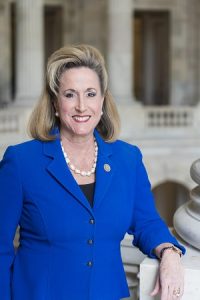
Rep. Ann Wagner
Bipartisan legislation sponsored by U.S. Rep. Ann Wagner (R-MO) that would allow a closed-end fund to increase its investment in private investment funds received approval on March 8 from the U.S. House of Representatives as part of a larger capital markets bill.
“I appreciate the strong support of my colleagues as we continue to help all Americans access the market and save for retirement,” Rep. Wagner said on Tuesday.
Her Increasing Investor Opportunities Act, H.R. 2627, introduced in April 2023 alongside lead original cosponsor U.S. Rep. Gregory Meeks (D-NY), would amend the Investment Company Act of 1940 to prohibit limitations on closed-end companies investing in private funds. A closed-end fund is a portfolio of pooled assets with a limited number of shares traded on an exchange.
“As chair of the Financial Services Subcommittee on Capital Markets, I have been laser-focused on supporting America’s main street businesses and retail investors,” said Rep. Wagner. “The Expanding Access to Capital Act is landmark legislation that will ensure that our markets are working efficiently and effectively to provide companies access to the capital they need to innovate, grow, and create jobs — not just on the coasts, but in America’s heartland as well.”
Rep. Wagner’s bill is part of the House-approved Expanding Access to Capital Act, H.R. 2799, led by U.S. Rep. Patrick McHenry (R-NC) to reduce various securities regulations applicable to certain companies, brokers, and advisors. The bill also allows more investors to invest in specified types of ventures, according to the congressional record bill summary.
“This package includes my bipartisan Increasing Investor Opportunities Act, legislation that opens up investment opportunities for millions of Americans throughout the nation and takes power out of the hands of arbitrary SEC staff,” Rep. Wagner said.
The U.S. Senate on March 11 received H.R. 2799 for action and referred it to the U.S. Senate Banking, Housing, and Urban Affairs Committee for consideration.



